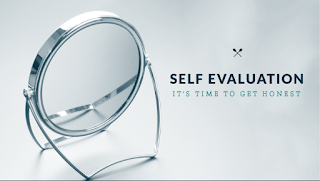It’s been a while now since I’ve thought of something worth blogging about. But this past few weeks have reignited the blogging flame, so here goes!
Over the last few weeks I’ve been lucky enough to spend some time in London at the Hockey World Cup. While there I was able to meet with, and reestablish connections with a number of people from the hockey community worldwide. This trip was planned as an opportunity for some professional development, and from that point of view it was very worthwhile. Interestingly, being in London with a professional development ‘hat’ on, it made me evaluate everything I did from that point of view.

One of the highlights of the trip was getting the opportunity to watch “The Lion King”live. As a late 80s baby the Disney movie was a key part of my childhood. Getting to watch it live, was a not-to-be-missed experience. Since the show ended it’s not been far from my brain. I found, that unintentionally I was evaluating it from a coaching standpoint. Here are some of the biggest lessons that I took away.
Experiment and innovate:
For those of you who aren’t in the know, “The Lion King” was an animated Disney movie about Lions. Making this come alive on stage would obviously mean some changes were needed. The show begins with an animal parade, as all the characters make their way on stage. There’s a giraffe played by a person walking on all fours on stilts, a meerkat played by a man in a green suit with a full size meerkat mockup in front of him. Every single animal was created in an imaginative way. By viewing the problem to be solved through a different lens, the show’s creators manage to create a whole world that ‘makes sense’ to everyone interacting with it. What could have been a ridiculous challenge “how do we make animals
come alive on stage” became a way to create a whole new world. (Aladdin pun intended)
Give the right jobs to the right people:
Throughout the story of “The Lion King” we meet a number of characters who have special roles within the animal kingdom. Zazu plays the part of the King’s advisor. Zazu is a small bird, and as such can provide the king with a different opinion and view point when it comes to matters of state (I’m reaching here, but stick with me!). However, early in the story Zazu is told to accompany young Simba and Nala on a trip to the watering hole. Simba and Nala escape Zazu’s watchful eye and end up in a dark, elephant’s graveyard. Here they are surrounded by hyenas, and put in grave danger. Protecting Simba, and keeping him from harms way, is not a skill in Zazu’s skillset. As such he struggles, and fails. Acknowledging this, he rushes to get help.
This is an integral part of the story, as it establishes a number of key points that drive the story. I wonder though was this simply a case of Zazu not being used in an appropriate role. As coaches we are lucky enough to work in a business of people. We all have different strengths and areas of expertise. Let Zazu advise, and don’t make him protect. Similarly allow your players to fulfil roles that match their strengths. This is worth bearing in mind when working with a staff too. Give the right job, to the right person.
Be careful when dealing with youth, help to manage expectation:
Simba is the rightful heir to the throne. This means that once his father passes away Simba will become the leader of the pride, and king of Pride Rock. In order to help him prepare for this role Zazu is assigned to teach and guide him. As we see in the song below this isn’t always appreciated by Simba. To me, “The Lion King” is really a story of how Simba deals with the pressure associated with his predetermined role. Initially loving it, and singing about how he “just can’t wait to be king”, the reality sets in soon after. Once his father dies he runs away, admittedly he is tricked at this moment by his uncle Scar, but nevertheless he disappears. Once Nala arrives the pressure of being expected to live up to his father’s name weighs him down, and he balks at the idea of returning home.
Too often with young players we build a plan for them in our mind. Acknowledging an athlete as ‘a special talent’ and putting pressure on them to succeed. As an athlete grows and develops we need to be conscious of the voice that we’re providing. Are we the Scar to their world, or are we Zazu. Do we teach, or inspire fear. Are we acting in their best interest or our own?
Know who you can trust:
I think that it’s clear here that Scar isn’t someone that should be trusted. But, as he’s a member of the family he plays a role in court. As coaches we need to be aware of the kind of people we are keeping around, and make sure that they’re acting in your best interests. That doesn’t mean they always need to agree, but knowing that disagreement is coming from the right place is very important.
As you prepare for your own coaching keep these things in mind:
- Experiment and innovate – solve problems creatively! It could be more fun.
- Give the right jobs to the right people – set your athletes up for success, that way they’ll experience it more.
- Protect youth athletes from inappropriate pressure – pressure can be a good thing, but just like medicine there’s an appropriate dosage.
- Know who you can trust











